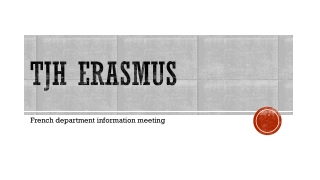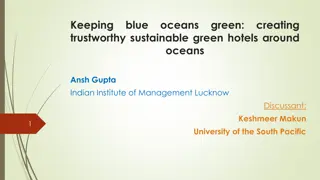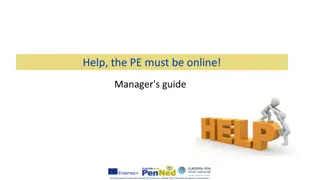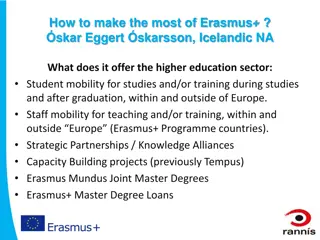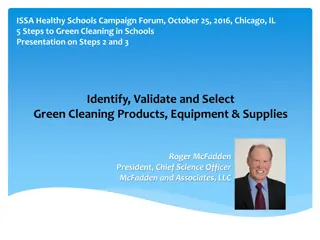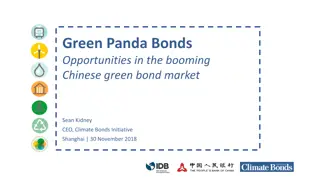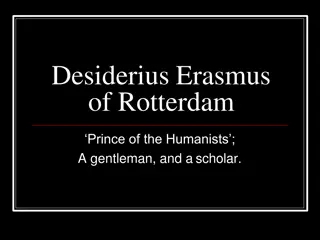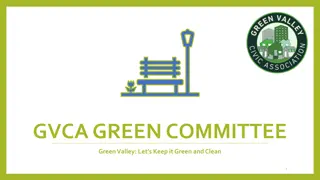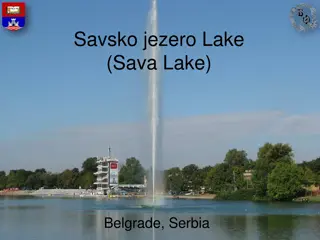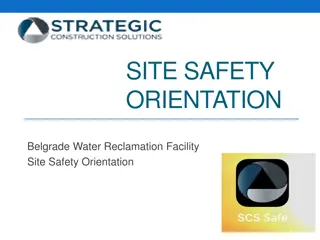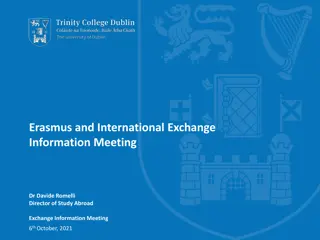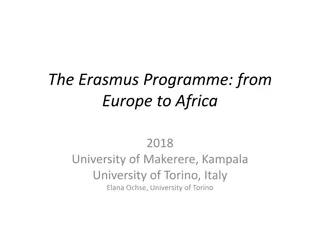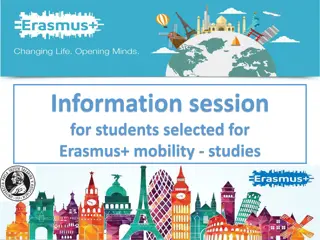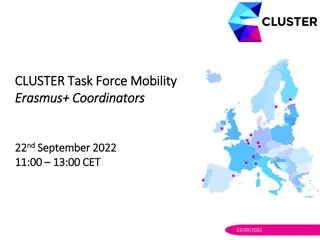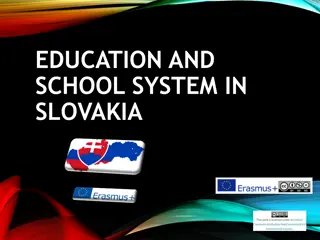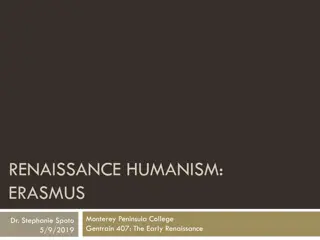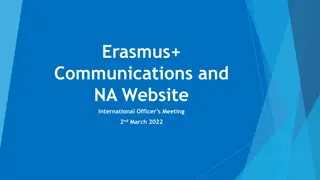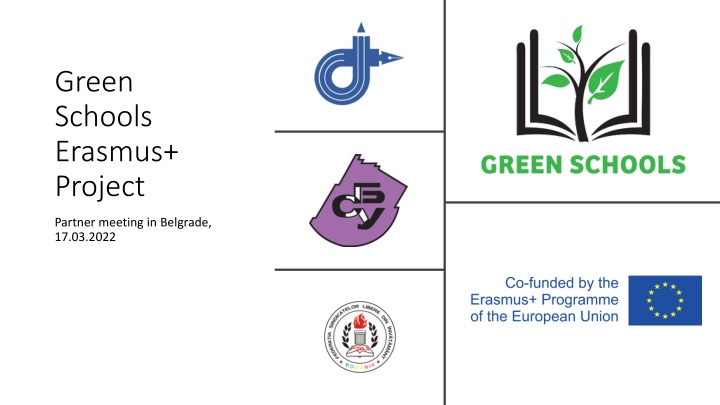
Green Schools Erasmus+ Project Partner Meeting in Belgrade 17.03.2022
"Explore the Green Schools Erasmus+ project partner meeting in Belgrade focusing on environmental education, development of environmental literacy, and support for green schools. Learn about objectives, methodology, and expected results for promoting eco-systemic awareness and proactive environmental citizenship among learners."
Download Presentation

Please find below an Image/Link to download the presentation.
The content on the website is provided AS IS for your information and personal use only. It may not be sold, licensed, or shared on other websites without obtaining consent from the author. If you encounter any issues during the download, it is possible that the publisher has removed the file from their server.
You are allowed to download the files provided on this website for personal or commercial use, subject to the condition that they are used lawfully. All files are the property of their respective owners.
The content on the website is provided AS IS for your information and personal use only. It may not be sold, licensed, or shared on other websites without obtaining consent from the author.
E N D
Presentation Transcript
Green Schools Erasmus+ Project Partner meeting in Belgrade, 17.03.2022
Main results expected Objectives Main topics to be covered Presentation of Methodology Tasks for the next 6 months
Objectives 1. Support primary teachers in providing quality environmental education in line with EC Green Deal and the UN Sustainable Development Goals. 2. Development of environmental literacy among the younger generations. 3. Support schools in implementing the concept of "green schools .
Main results expected Methodology for organising and implementing a short qualification course for primary teachers in ecological education 750 pupils engaged in ecological education activities, as a result of the training (250 per partner country) 30 primary teachers trained (10 per country) In the long-term this effect will contribute to fostering eco-systemic awareness and proactive environmental citizenship in learners More than 5000 stakeholders from the three partner countries will be reached The project will improve the quality of ecological education at primary education level
Project timeline Jan Feb Mar Apr May Jun Jul Aug Sep Oct Nov Dec Jan Feb Mar Apr May Jun Responsible partner Project activity* Work stream 1 - Management Tasks allocation, monitoring and control 1 2 3 4 5 6 7 8 9 10 11 12 13 14 15 16 17 18 SBU (BG) M1 - Kick-off project meeting, Belgrade (RS) TPM TUS (SR) SBU (BG) FSLI (RO) ALL M2 - Second project meeting, Sofia (BG) M3 - Final project meeting, Bucharest (RO) TPM TPM PR FR (prep) ALL Progress reports Final report PR PR Work stream 2 - Development of R1 (Methodology for organising and implementing a short qualification course for primary teachers in ecological education) 1 2 3 4 5 6 7 8 9 10 11 12 13 14 15 16 17 18 SBU with inputs from TUS and FSLI SBU with inputs from TUS and FSLI SBU with inputs from TUS and FSLI FSLI with inputs from SBU and TUS TUS with inputs from SBU and FSLI SBU with inputs from TUS and FSLI Content structure development in EN Validation of content (research group and additional scientific research) Development of content in EN and translation in partner languages (BG, RO and SR) Training 30 primary teachers (10 teachers per country) Piloting with 750 pupils (250 per per country) Evaluation of piloting data, fine-tuning and official publishing Work stream 3 - Promotion and shaing Set-up and maintain a project page in Facebook FSLI (RO) FSLI (RO) ALL Set-up visual identity Produce and publish info items (30 items) Participation in thematic events with 15 presentations (5 per partner) Meetings with stakeholders E1 - Final conference, Sofia (BG) ALL ALL SBU (BG) Preparation
Methodology for organising and implementing a short qualification course for primary teachers in ecological education (IO1) Concept The aim of the Green School methodology is to provide concrete and clear guidelines to organise and implement training course for primary teachers in ecological education. Min. 100 pages (excluding bibliography). It will be available in EN and all partner languages. The methodology will also contain a teacher s book, which the trained teachers can use, when planning, organizing and implementing training on the topics addressed in their classrooms.
Methodology for organising and implementing a short qualification course for primary teachers in ecological education (IO1) Concept Thematic training content to be delivered in the training course, emphasising on Green Deal priority, UN goals for sustainable development and the shift from the paradigm of recycling to the concept of zero waste. Thematic training methods and practical activities to be presented to primary teachers. These methods will focus on engaging pupils in practical/experiential activities, which foster their ecological awareness and environment citizenship skills. Training guidelines for providers of courses to teachers with a sample course structure in line with national legislative frameworks. Special chapter on the concept of Green Schools going beyond the classroom activities . Inspired by Green Schools model from Ireland (https://greenschoolsireland.org/)
Methodology for organising and implementing a short qualification course for primary teachers in ecological education (IO1) Tasks April-May 2022 Tasks Validation of concept (research group and additional desk research) BG sends research questions and instructions for focus groups Partners prepare national reports with findings, including sources that can be used for drafting the methodology BG partner consolidates findings and makes changes to the structure of the methodology, if needed BG partner will distribute development (writing tasks) to all partners. For example: FLSI - chapter on teaching methods TUS - chapter on ecological education SBU - chapter with guidelines for course providers and the Green Schools concept.
Tasks for 6 months (up to Sep2022) SBU (BG) TUS (RS) FLSI (RO) 1stpayments to be made Conduct national research groups and desk research Conduct national research groups and desk research Send instructions for research groups and desk research Prepare national report Prepare national report Conduct national research Work on concrete content development Work on concrete content development Consolidate national reports Promotion and sharing: Facebook page of the project, publishing news items in cooperation with other partners Assign development tasks Start working on content development
Open discussion

